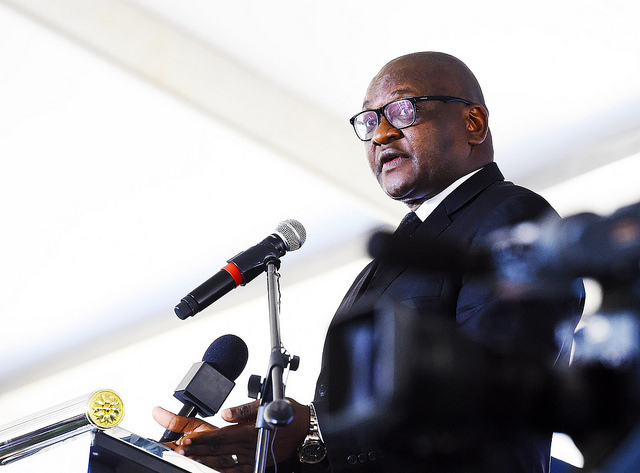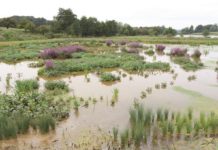The government of South Africa’s Gauteng province will open a new department dubbed the “water war room” in June of this year to mitigate the country’s current water scarcity crisis.
Premier David Makhura announced the plan last week to officials at a forum for South African provincial governments and municipalities.
“The Gauteng City Region (GCR) is very vulnerable with regards to facing a water crisis and this is due to our location, the type of economy we run, and the number of people we attract,” he said, adding:
“We need to agree on setting up a water war room that will be made up of representatives from the provincial government and local government.”
The province continues to transform from wetlands used to graze livestock into an urban economic hub. It is the smallest region South Africa, making up only 1.5 percent of the total land, yet contains the country’s biggest city, Johannesburg. Its growing population (around 13.7 million people) is placing increasing pressure on its water supply, with recommended litres per person recently lowered from 347 to 287.
In the announcement, Makhura cited research showing that while Gauteng uses just 11 percent of the country’s water, it contributes some 38 percent of its resources to the national economy. In a State of Province Address in February earlier in the year, Makhura said the supply of both water and energy were “the most urgent and pressing challenge for the Gauteng City Region”.
“We need to harness new technologies to address a range of issues, such as water treatment, waste water management and sanitation, rainwater harvesting and aging infrastructure which leads to huge water losses,” he said.
The volume of water needed to sustain the province is unlikely to be met within the next seven years, according to water experts present at the recent forum. They urged Makhura to invest in infrastructure capable of ensuring the region has additional storage for water no longer stored naturally in the ground.
Makhura did not say whether the war room plans would introduce commercial parties to discussion of how to manage the region’s resources, though said it would be made up of a “political and technical component, which will be used to identify trends and respond to those”.









